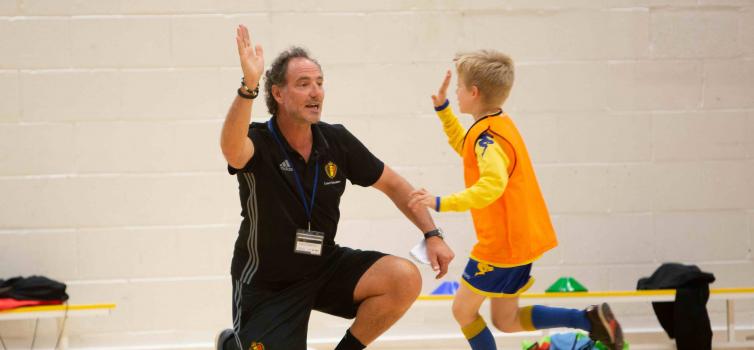Kris Van Der Haegen: Five reasons why children stay in sport

Kris Van Der Haegen is Director of Coach Education for Belgium
Written by Kris Van Der Haegen — January 2, 2020
IN 2014, Dr Richard Bailey and his colleagues conducted a review of all the available evidence about why children stay in sport sessions and clubs and why they drop out.
What they found out may surprise you. They found that children’s participation in sport depended on five primary factors:
1. Fun and enjoyment
These are without question the most important factors when it comes to sustaining participation in sport. Children - and dare I say adults too - have a natural attraction to play.
They love playing and sport of course is a form of play. Answer this question as a coach - do you want to be a fun maker or a fun killer?
Some simple fun makers include playing playground games, giving drills and games funny names, using stories and narratives around the activities and running mini competitions.
All this can contribute to livening up your sessions. By contrast, fun killers are things like coaches talking too long, players waiting forever in lines between turns and having to repeat the skill or drill until it gets really boring.
2. Feeling competent
Basically, children need to feel that they can do what is required of them during sessions and that they can cope with whatever is thrown at them.
The main thing is to make sure that you set the activities and tasks at the right level. If you are constantly asking them to do things they are not ready for yet then they will get frustrated, fearful and even bored.
From here to dropping out is only one short step.
3. Learning new skills
Children love learning new things. Have you ever seen them playing video games and how excited they get when they master a new move or go to the next stage of the game?
Video game designers are very good at setting up progressive challenges and hooking kids with learning and rewards. Coaches should do the same and find ways to show the kids they are getting better and reward them for it.
That’s how you make the learning and improvement visible.
4. Being with friends
This is a no-brainer. Children come to sport to either to be with their friends or to make new friends. So, as a coach, please be flexible.
Sometimes they may be chatty or a bit distracted, but let them interact with each other and build those friendships.
It's not the Olympics or the World Cup!
Also, give them a chance to make new friends by making sure they get to work with different partners in drills or games.
5. Attitude of parents
This is last but by no means least. Parents are obviously important for their kids, but perhaps sometimes we don’t realise how much.
Parents who are themselves involved in sport are more likely to have their children involved in sport for longer. But, also, children of parents with positive attitudes in sport, like good sportsmanship or unconditional love regardless of success, tend to stay in sport for longer too.
(Kris Van Der Haegen is Director of Coach Education for the Belgian FA and assistant manager of the Belgium Women's team. The video above was produced by iCoachKids, a multi-agency project aimed at supporting the development of a Specialist Children and Youth Coaching Workforce across the EU).



-1.png)





